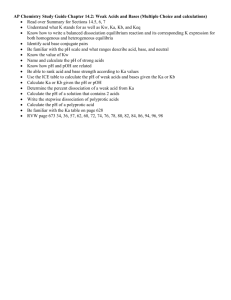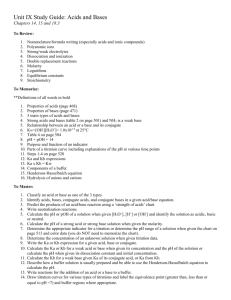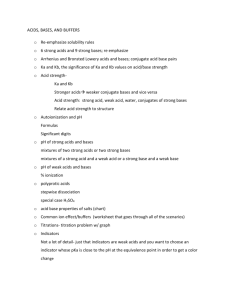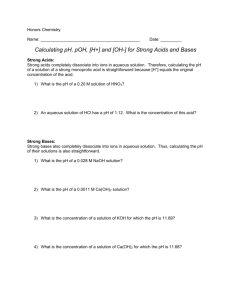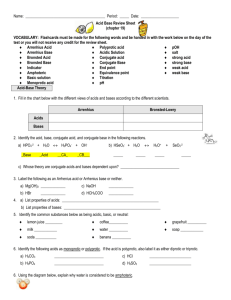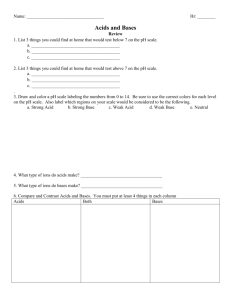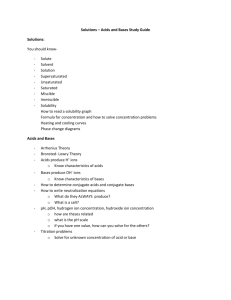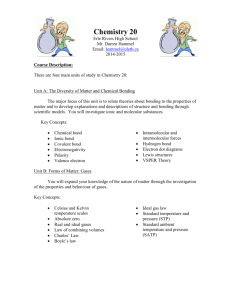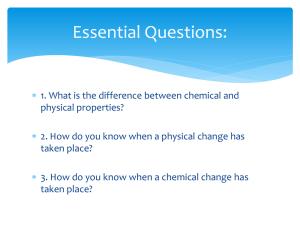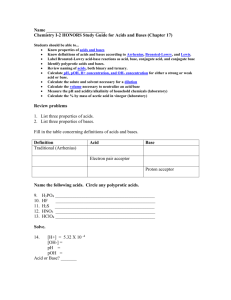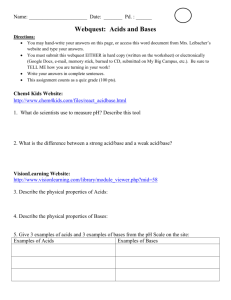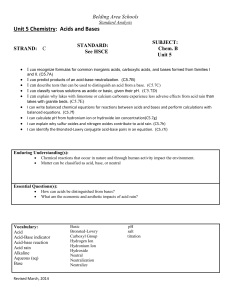CHEM 102 Instructional Objectives CHAPTER 15. Acids and Bases
advertisement
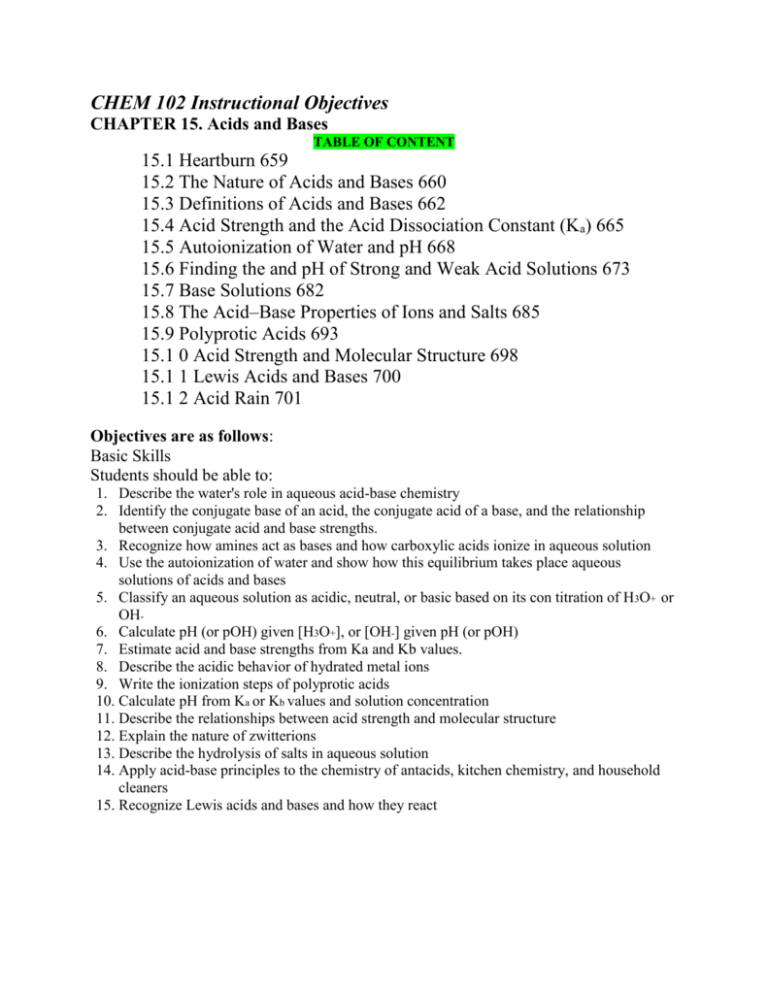
CHEM 102 Instructional Objectives CHAPTER 15. Acids and Bases TABLE OF CONTENT 15.1 Heartburn 659 15.2 The Nature of Acids and Bases 660 15.3 Definitions of Acids and Bases 662 15.4 Acid Strength and the Acid Dissociation Constant (Ka) 665 15.5 Autoionization of Water and pH 668 15.6 Finding the and pH of Strong and Weak Acid Solutions 673 15.7 Base Solutions 682 15.8 The Acid–Base Properties of Ions and Salts 685 15.9 Polyprotic Acids 693 15.1 0 Acid Strength and Molecular Structure 698 15.1 1 Lewis Acids and Bases 700 15.1 2 Acid Rain 701 Objectives are as follows: Basic Skills Students should be able to: 1. Describe the water's role in aqueous acid-base chemistry 2. Identify the conjugate base of an acid, the conjugate acid of a base, and the relationship between conjugate acid and base strengths. 3. Recognize how amines act as bases and how carboxylic acids ionize in aqueous solution 4. Use the autoionization of water and show how this equilibrium takes place aqueous solutions of acids and bases 5. Classify an aqueous solution as acidic, neutral, or basic based on its con titration of H3O+ or OH6. Calculate pH (or pOH) given [H3O+], or [OH-] given pH (or pOH) 7. Estimate acid and base strengths from Ka and Kb values. 8. Describe the acidic behavior of hydrated metal ions 9. Write the ionization steps of polyprotic acids 10. Calculate pH from Ka or Kb values and solution concentration 11. Describe the relationships between acid strength and molecular structure 12. Explain the nature of zwitterions 13. Describe the hydrolysis of salts in aqueous solution 14. Apply acid-base principles to the chemistry of antacids, kitchen chemistry, and household cleaners 15. Recognize Lewis acids and bases and how they react
